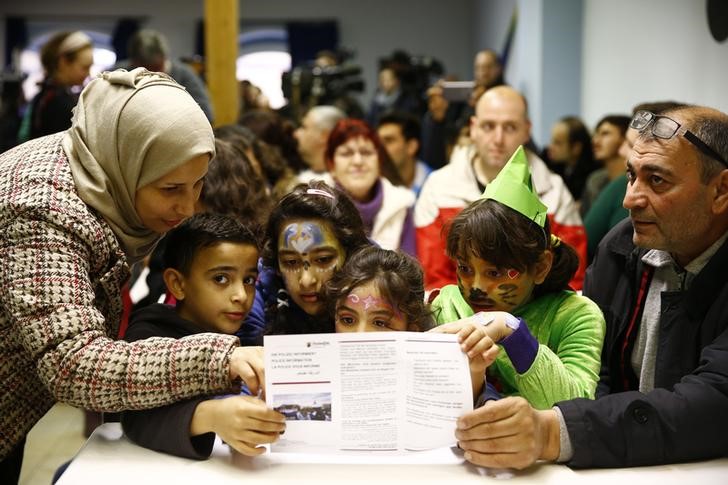By Michelle Martin
COLOGNE, Germany (Reuters) - As Cologne gears up for its annual carnival, authorities said on Monday they would put more police on duty, light dark areas and use video surveillance to make people feel safe after assaults on women at New Year shocked the nation.
Every year revellers in the city, famed for its twin-spired gothic cathedral, don colourful costumes and paint their faces for the raucous festival. Party-goers drink local 'Koelsch' beer, sway to jolly songs and attend parties or masked balls.
But this year, a shadow looms over the festivities. The last time big crowds gathered here on Dec. 31, hundreds of women were groped, sexually assaulted and robbed outside the central train station. Regional interior ministry and police reports said most of the men there were of North African and Arab appearance.
More than any other incident, the attacks fuelled growing criticism of Chancellor Angela Merkel's decision to open Germany's doors to more than a million migrants.
Cologne Mayor Henriette Reker said city officials had done everything they could to make people feel secure during the Feb. 4-9 carnival but safety could never be 100 percent guaranteed.
"We'll celebrate the traditional, unique and world-famous carnival much to everyone's delight like we have always done in Cologne," she said. "We have reacted to the events of New Year's Eve with specific measures."
More than 2,000 police will be on duty for 'Weiberfastnacht' (women's carnival day) -- the first big day of revelry when women often cut off men's ties -- around twice as many as last year, and the number of officers on regular duty will be significantly increased, Cologne Police Chief Juergen Mathies told reporters.
Police will use video cameras to monitor potential trouble. On New Year's Eve, there were none in the square outside the station, partly because surveillance by the communist-era East German Stasi and the Nazi Gestapo makes such tools unpopular.
Police have banned 38 people from entering certain areas of Cologne and nearby Leverkusen, Mathies said.
Cologne authorities will light 30 dark areas and close off a square that is too dark to be lit as they spend 478,000 euros ($520,685) more on keeping the city safe and clean than last year, city director Guido Kahlen said.
Transport companies said they would boost staffing at their trains and at stations to improve security.
NO GUARANTEES
But alcohol and costumes -- two big elements of the carnival that has a tradition spanning almost 2,000 years in Cologne -- as well as the huge number of people, make it hard to guarantee security, police chief Mathies said. Police received around 50 complaints of sexual assaults, including rape, during last year's festival.
"We can't rule out that such criminal offences will happen again this year. We need to be realistic," Mathies said, adding his force will take firm action against sex offenders and support teams will look after any victims.
Some revellers said they would be extra cautious.
"I'll go but I'll keep a closer eye on my friends and pay more attention to my surroundings," said Hanna, a 19-year-old archaeology student.
Others have decided not to celebrate in the city centre. Jana, an 18-year-old schoolgirl, will go to a smaller carnival outside the city.
"I'll definitely have my pepper spray with me and I won't go to Cologne - I usually do but I won't dare this year after the incidents at New Year's Eve," she said.
The Cologne carnival committee has printed flyers for migrants in German, English and Arabic explaining the annual festivities, inviting them to take part and tell them not to worry if they see people dressed as soldiers because their guns are made of wood and loaded with flowers.
Carnival (L:CCL) has long been a part of Cologne's culture, from the Romans' spring festivals to the ancient Germans' parties as they expelled the winter demons. Later, the Christians enjoyed carnival - believed to come from 'carne vale' or 'farewell to meat' - before fasting for Lent.
Last year an estimated 1.5 million people attended the highlight, the Rose Monday street parade, where spectators watch a 3.5-hour long procession that includes satirical floats mocking politicians and global events as participants throw them sweets, chocolates and flowers.
